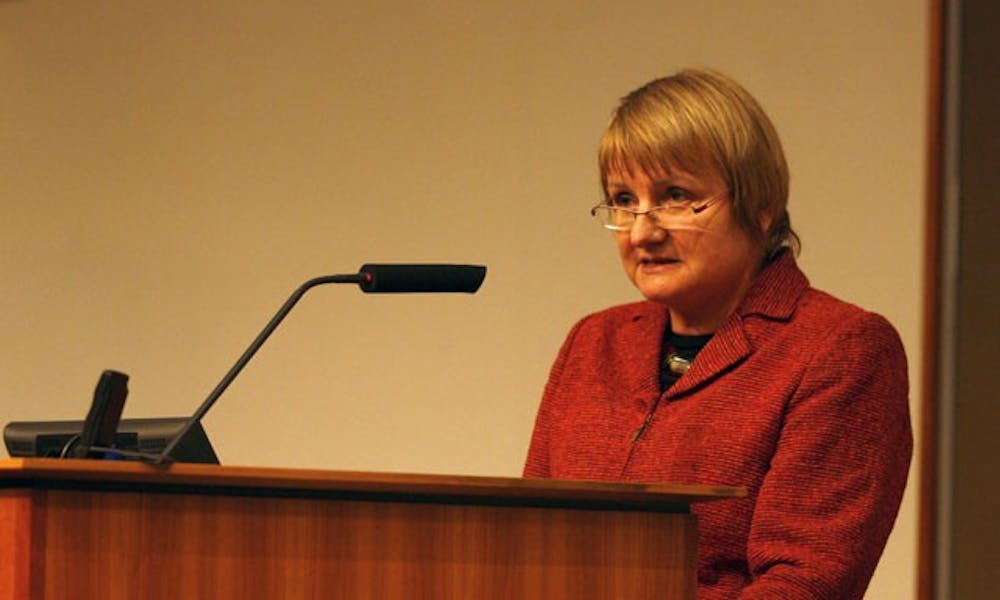Few undergraduate students at Duke can recall the events of November 1989.
Perhaps they may remember a textbook chapter about the fall of the Berlin Wall. But then, they would only have a small piece of the story. The Berlin Wall did not merely fall—it was torn down by men and women like Vera Lengsfeld.
Lengsfeld, a civil rights activist, author, teacher and former member of the German parliament addressed an audience of approximately 100 students, faculty and Duke community members Monday night.
She began her 30-minute speech by criticizing historians’ and scholars’ impulse to focus on world leaders instead of ordinary citizens when studying the collapse of the Soviet Union.
“The politicians were not involved,” she said. “Rather, it was ordinary people of the streets who had been demonstrating for weeks and months before and eventually were successful.”
Although Lengsfeld has been out of politics since 2005, she is making a comeback by running for a seat in the German parliament as a member of the Christian Democratic Union of Germany. Lengsfeld accused the oppositional Social Democratic Party of continuing to promote some of the same policies that decimated East Germany under communist rule.
“Even accomplished journalists are inclined to see a real difference between the old [Social Democratic Party] and the new left party,” she said. “While the jargon has changed and the lingo sounds more fashionable, the substance of the socialist party’s policy proposals has hardly changed at all.”
Students at the event said they found Lengsfeld’s story and her involvement with such a large historical event interesting.
“It was great to see so many students come out to hear about her personal experiences and the role she played in bringing down the wall,” said Michelle Eley, a graduate student in the German department.
The event, which was funded by the Department of Germanic Languages and Literature and Duke University Union Major Speakers Committee, is part of this week’s Freedom Without Walls celebration. Duke is one of 30 universities in the United States partnering with the German Embassy in Washington, D.C. to hold events on and around the 20th anniversary of the fall of the Berlin Wall.
The partnership includes a $5,000 grant from the embassy to the schools for program funding.
Lengsfeld’s time spent on the frontlines of the struggle against communism dates back to her college years in Cambridge, where instead of choosing a more comfortable life in England, she returned to East Germany to fight for human rights.
In 1988, she was arrested for displaying a sign proclaiming: “Every citizen has the right to express his opinion freely and openly.” This statement, considered too radical for East Germany, led to Lengsfeld’s arrest and detainment in a prison of the East German secret police.
During a tour of that prison last Fall, senior Albert Karcher, co-president of the Duke German club and a member of the Freedom Without Walls committee, met Lengsfeld. When the committee began planning this event at the beginning of the semester, Lengsfeld was the first speaker Karcher thought of.
“What a horrible experience it is to be in one of those prisons, isolated from her friends and family, in horrible conditions,” Karcher said, recalling the tour with Lengsfeld. “We thought that she would be able to share some interesting stories and give some personal perspective about what it was like to be there during the fall of the wall.”
Get The Chronicle straight to your inbox
Signup for our weekly newsletter. Cancel at any time.

